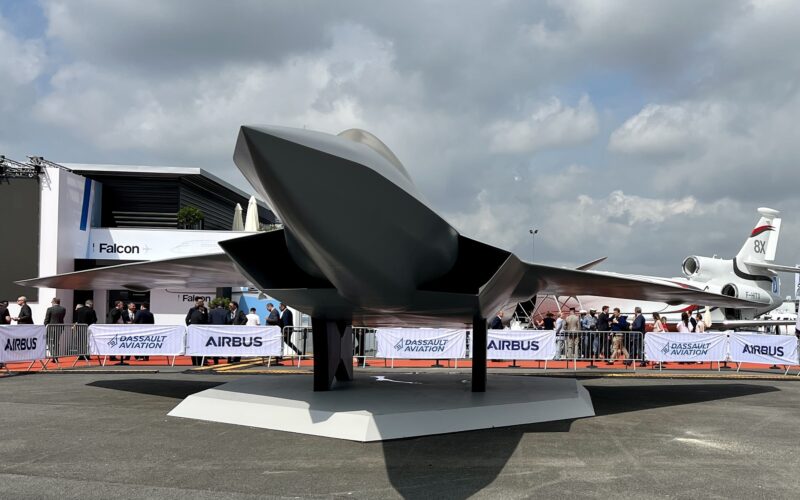Amidst recent speculation and media reports suggesting a potential withdrawal from the Future Combat Air System or FCAS project, Germany has reaffirmed its commitment to the joint endeavor with France and Spain.
On November 1, 2023, the British newspaper The Times, citing sources close to Germany’s Federal Chancellor Olaf Scholz, reported that Germany was contemplating leaving the Future Combat Air System or FCAS project with France and Spain and instead joining the British-led Tempest program, recently renamed Global Combat Air Programme (GCAP).
According to this media report, the withdrawal would be considered because of an alleged slowness of the Franco-Spanish-German program compared to its British-led counterpart. Additionally, the Chancellor was dissatisfied with what he perceived as preferential treatment for the French aerospace industry.
However, on November 3, 2023, the German Ministry of Defense (MoD) denied any such withdrawal, emphasizing that they are still dedicated to the project.
“Germany is sticking to the joint project with France and Spain,” a German MoD spokesperson told Breaking Defense. “Media reports that Germany is pulling out are false. The first demonstrator is currently being built. We are on the right track here and will continue on this path.”
After a year-long stalemate, Dassault and Airbus finally reached an agreement for phase 1B of the FCAS on December 1, 2022. This phase will see manufacturers develop a technology demonstrator of the ‘system of systems’ built around a sixth-generation fighter jet known as the Next Generation Fighter (NGF).
A ‘loyal wingman’ for the FCAS
General Ingo Gerhartz, the head of the Luftwaffe (the German Air Force) further reinforced Germany’s commitment to the FCAS program and expressed a desire to accelerate specific subprograms, particularly the unmanned components, known as ‘remote carriers,’ that will aid the NGF in carrying out an array of missions, including electronic warfare, reconnaissance, decoy operations, and even saturation attacks.
“We can have remote carriers out of that project much much earlier,” General Gerhartz told Defense News.
As it stands, Airbus Defence and Space was given the leadership of pillar 3 of the FCAS, in collaboration with the European missile maker MBDA. Recoverable Remote Carriers (RRC) are being developed by Airbus, while Expendable Remote Carriers (ERC) are under the leadership of MBDA.
Furthermore, General Gerhartz expressed a desire to expedite the development of a combat drone that could serve as a ‘loyal wingman’ to the NGF. To do this, the three nations could leverage several technological solutions developed by the manufacturers involved in the FCAS.
On November 5, 2019, Airbus Defence and Space unveiled the existence of its “Low Observable UAV Testbed”, or LOUT, a secret program for the German MoD that started in 2007.
Dassault Aviation has also been working on such a drone for several years, with the nEUROn stealth combat drone demonstrator. This program, which saw the demonstrator take off for its maiden flight in 2012, involved six European countries in the development, including France and Spain.
In its next military programming law (LPM) for the 2024-2030 period, France already notified “the development of “the development of a drone accompanying the Rafale, resulting from the work of the nEUROn demonstrator.”

